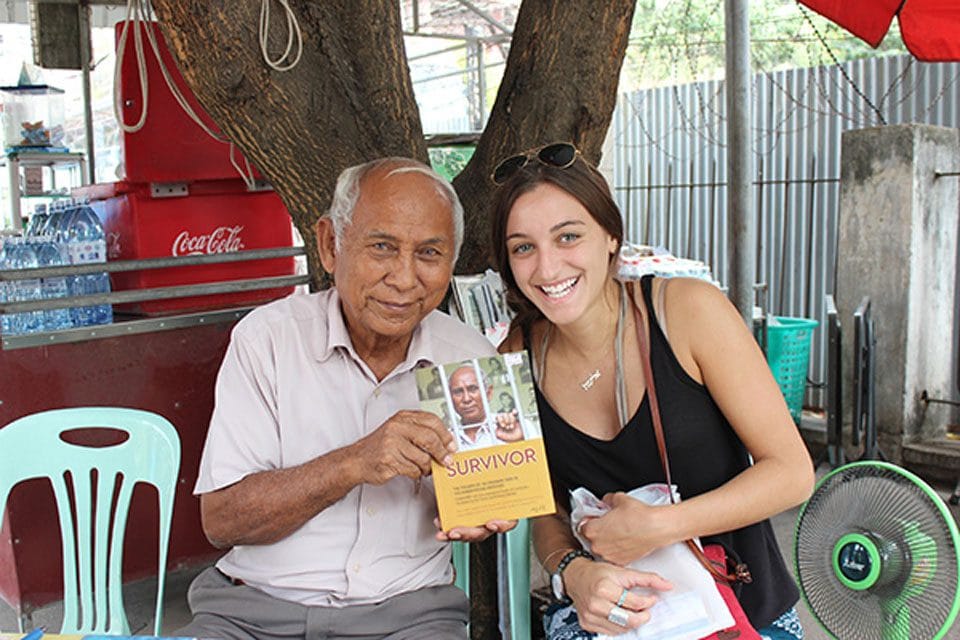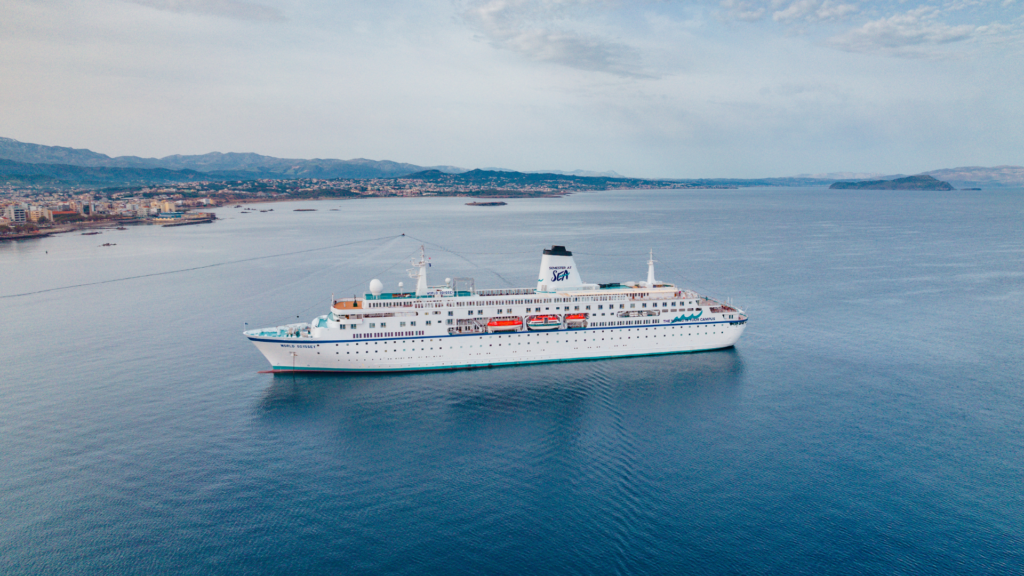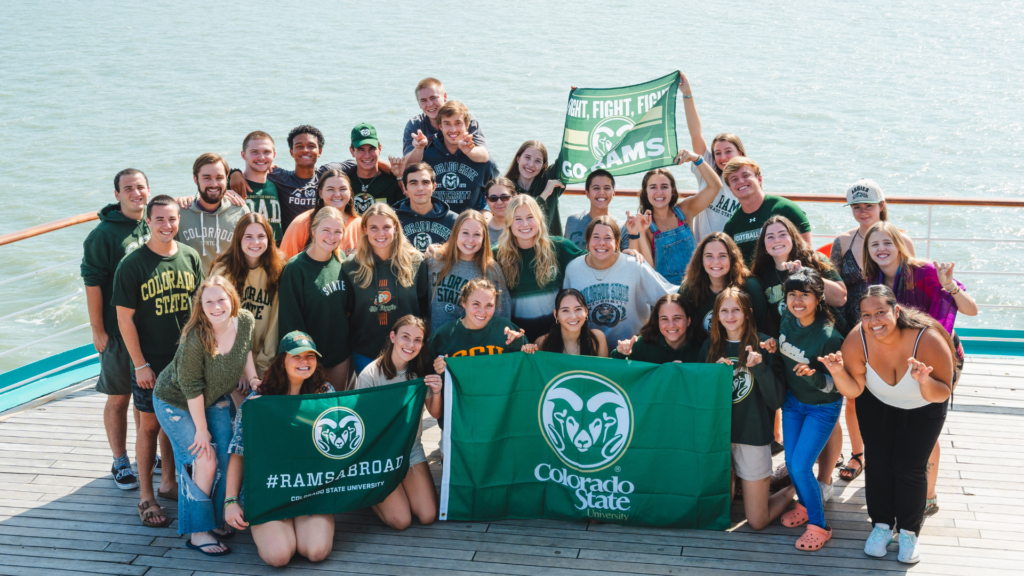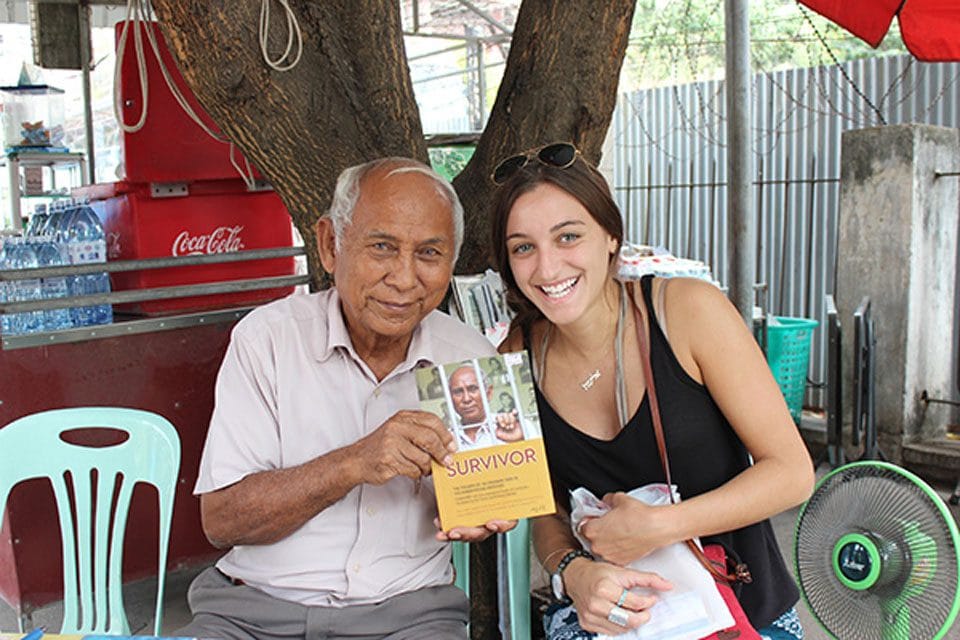
While the MV Explorer was docked in Ho Chi Minh City, Vietnam, students had the unique opportunity to choose from a number of Semester at Sea Field Programs and travel internationally to Cambodia. I was fortunate enough to participate in the Cambodia Express Field Program, where we traveled via three flights in three days to both Phnom Penh and Siem Reap. Despite visiting one of the most impressive and magnificent temple complexes in Angkor, a highlight for many participants, myself included, was our visit to the Choeng Ek killing fields and the Tuol Sleng Genocide Museum, a former prison camp and torture chamber under the Pol Pot Regime. Throughout our visit to these powerful sites, we were able to learn about the Cambodian Genocide carried out by the Khmer Rouge from those who lived in Phnom Pehn during the Regime, as well as from actual survivors of Security Prison 21.
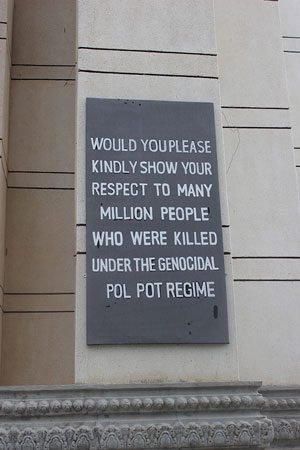
The experience was both emotional and educational for many student participants. Katherine Baral, a rising senior at The University of Michigan described her experience visiting the killing fields and Security Prison 21. “With this field program,” explained Baral, “it was more of a learning experience. For me, I knew that what we were going to see was difficult, but I never really understood the scale of the atrocity until visiting Cambodia. Furthermore, being able to spend a day learning about Cambodia’s such recent and painful history and then experiencing the richness and spirit of the culture today gave me a great sense of admiration for the Cambodian people.”
As an International Studies student at the University of Michigan who is studying genocide and international human rights, I was surprised at how little I actually knew about Cambodia’s recent history and its continued effort to cope with the genocide. Abigail Solomon, a rising senior at the University of Florida, noted that “There’s a difference between learning about genocide in a classroom and actually be here to learn about these events and have it be explained by those who experienced it. I’m disappointed that through my education I had never even heard about the Genocide, but I’m grateful that Semester at Sea gives us the opportunity to learn about these events in both a classroom setting as well as through personal encounters.”
The opportunity to bridge the gap that can form in classroom-based learning is what compelled me to embark on Semester at Sea. I am learning that the best way to study history and culture is to engage with those who have experienced it themselves. The ability and privilege to incorporate people’s stories from around the world into my classes both on the ship, but especially in my home university, is really what Semester at Sea is about. Although I’ll debark the MV Explorer come April 29th, the stories that people from around the world have shared with me are what will continue to shape me as a student and as a person. My hope is that I can continue to share their stories with others so that others will learn from them as well.
